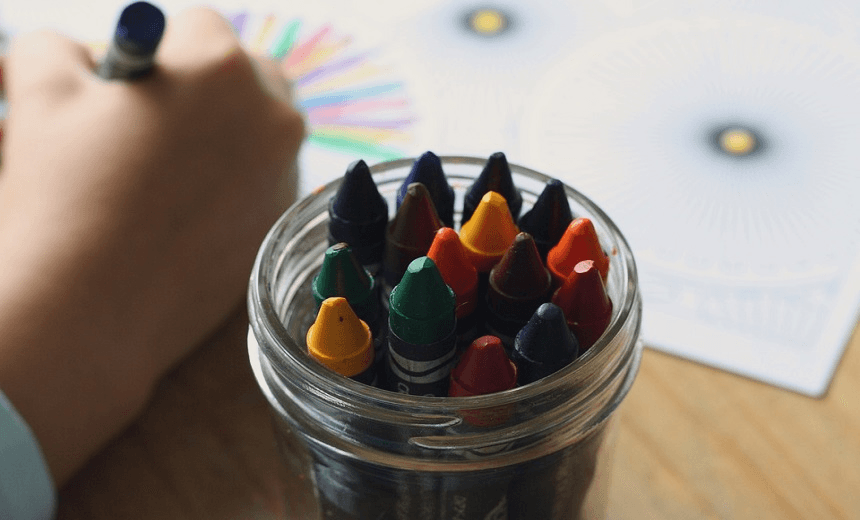Donna Eden is a teacher with 20 years’ experience and a mother of two, currently working at a kindergarten in Wellington. Here she shares with parents her personal guide to voting for education, a topic close to our hearts at The Spinoff Parents.
We’re running three pieces on The Spinoff Parents this week about education. We think it’s such an important topic for parents that it deserves this much attention. Yesterday, we published a post on a Newtown Kindergarten begging for help for their special needs students. On Thursday, we will run a Q&A with a principal on teaching. – Emily Writes, editor.
As the election draws closer and politicians come out to try and woo voters it can be easy to get caught up in the moments of political spectacle and forget the issues that are closest to our hearts.
The drama, the pace of ‘announcements’ and ‘policy revelations’ can really sweep you off your feet around now and the closer the election gets, the more information comes at us. Over the last week I have taken a quiet minute or two to identify the handful of key issues that for me will sway my vote. I know that this mix will be different for all of us, but as a kindy teacher I’m often asked my thoughts on this by parents.
For me, the very top of my agenda is a commitment to vote education. Partly because I have two little folks who are directly impacted by the funding and policy that whatever government we elect will implement, and partly because I am a teacher.
As a teacher, my colleagues and I are woefully frost bitten by seven years of funding freeze – is anyone else cold or is it just me?
So how will I vote for education?
What do I need to know to tick for my kids and your kids this election?
How can I make sure that all children get access to great, public education and how can I help to restore what has been lost from our public education system?
I need to know policy promises and promised funding (see how the parties stack up here). I need to know if their policy sounds like a good idea and if it sounds like enough money to the right places.
My advice for parents is to keep an eye out at your school, kindergarten, ECE centre, Kohanga reo, playcentre, Kura, or university – anywhere you go that is involved with education. They’ll all likely have a poster or display somewhere that will outline what each party is promising. These are gold for easily identifying what’s on offer. Or you can look at the party policy table produced by NZEI Te Riu Roa, New Zealand’s largest union.
Talk to your child’s teachers. They can’t tell you how to vote or who to vote for but they might be able to talk about how different policies would impact on the children at your centre or school.
Talk to other people with children to see what they think about what’s in the news and what it will mean for their kids and all kids. Make a point of talking to parents with children with extra needs or high health needs.
Visit Every Child and see if your local MP has signed the pledge to improve education funding. If they haven’t you could visit them or email them to ask why they’ve chosen not to.
When you are listening to the news and policy announcements around education use your suspicious ear. If a party plans to improve funding (woohoo awesome) where is the money going? Does it all feel and sound right? Is it ‘new money’ (better funding) or just moving around the existing funds and if we move it to a particular target is someone else getting short changed? If a party is saying they have improved funding ask them how – where did the money go? And do their claims resonate with the other things hitting the news?
If teachers are complaining about a funding freeze where has this “funding increase” gone? Be mindful of spin, for example, if a political party is saying for every $1 parents spend on education the government spends $4, think about our free public education system and the expectation that parents will have to spend money to prop it up.
Remember that the $4 from the Government is YOUR MONEY TOO! It’s called taxes, it isn’t a kind gift from their own pocket.
Organisations like universities, kindergartens, schools and community groups are putting on events where you can meet the candidates, hear what they have to say, and ask questions. If you can go along, make sure you do! It’s a great opportunity to ask about the things that are most important to you and get an idea of what the parties are promising. Often there are speakers or a parent panel and MP panel too. I have learned so much listening to parents share their stories and by watching how MPs respond to these stories.
But most importantly VOTE! Get down to a polling booth on election day and have your say. Take a friend, take a relative, take a first time voter, take someone who hasn’t voted for a while, take your children, and get down there.
Voting is powerful, and it’s time to use that power.
Read more from Donna:
A teacher tells you what you need to know about bulk funding
Donna Eden has been an ECE teacher for 20 years. She currently works with infants and toddlers and thinks we could all learn a lot from them – especially about speaking out when you don’t agree. She is a lesbian, feminist, badass and mama of two awesome children with the best sweetheart ever. She works hard to practice kindness, fairness and mindfulness every day.
Follow the Spinoff Parents on Facebook and Twitter.
